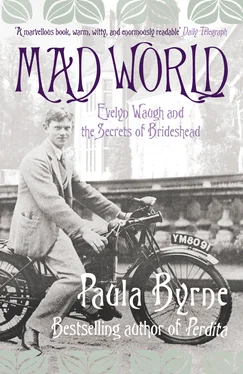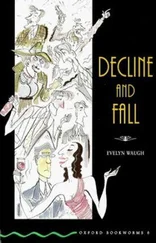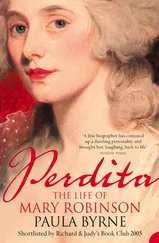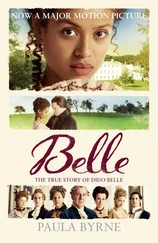At the time of the 1911 census, shortly before Elmley and Hugh went off to board at prep school, the household at Madresfield included a butler, a valet, three footmen, two hallboys, a housekeeper, five housemaids, a nurse, three nursery maids, a cook and four kitchen maids. A coachman and two grooms lived in the stables, while a skeleton staff of four was retained at Halkyn House.
The family were very devout and when at Madresfield they all attended Anglo-Catholic services twice a day in the chapel. All the staff had to attend too, men on the right and maids on the left, with the family in front. High Church rituals were strictly observed: the candle on the right of the altar would always be lit before the one on the left. Each child had a leather-bound prayer book with their name on it, a flower emblem engraved in gold and a loving inscription from their father.
When they were at their London home, the Lygons would cross the city every Sunday to their favourite church in Primrose Hill. Rather surprisingly, they travelled by bus and the newly opened underground railway; Lord Beauchamp in top hat and morning coat, Lady Beauchamp in satin and fur bedecked with jewels. The earl considered taxies an extravagance and thought that Sundays should be a day of rest for cars as well as horses.
The Lygon children disliked their overbearing, pious mother. Lady Beauchamp always insisted on hiring a nanny who had a neat parting precisely in the middle of her head because this reminded her of the Madonna in Renaissance paintings. She instructed the children personally in religious education. One of her daughters described her mother as ‘very odd, a religious zealot’. Within the family, she was nicknamed ‘Tomo’, because her motto was ‘Tidiness, Order, Method and Organisation’. Lady Sibell, the longest-lived of the siblings, recalled that this mantra was ‘the secret of the house and she once made me write it out a hundred times’. She also remembered her mother saying: ‘I’m right because I’m always right and anyone who says I’m wrong is mad and wicked.’
Madresfield had so many staircases that if the children heard their mother coming up one of them they ‘could be sure to go down another’. Each child found him or herself displaced from the countess’ special affections when a new baby arrived. ‘I had quite a long innings,’ said Sibell, ‘because she had a miscarriage in 1908.’
The children were encouraged to be hardy and robust, to take regular outdoor exercise. The three boys were taught boxing and lawn tennis. Hunting was encouraged for the girls (side-saddle of course) as well as the boys. Sibell was put on a horse at the age of two and grew up to become a Master of Foxhounds. When riding out, the children were always accompanied by a groom dressed in black, with polished silver buttons and a black silk top hat.
They swam regularly both at Madresfield, where there was an outdoor pool, and at Walmer Castle, which was by the sea. The water in the Madresfield pool was never changed, so must have been somewhat stagnant. Rather than being taught to swim, the children were thrown in at the deep end and told to make movements. When the ladies had departed from a swimming party, Lord Beauchamp would announce that ‘Gentlemen may lower their costumes.’
The children loved Madresfield but heartily disliked Walmer Castle, where their mother forced them to swim in the freezing sea. Sibell’s birthday was in October. ‘Tomo’ asked her what she would like to choose as a birthday treat. ‘Not to bathe today’ was Sibell’s answer. The countess replied: ‘For that you will go in twice.’ When the girl was stung by a jellyfish, ‘Mother’s cure for that was to fill a bucket with jellyfish and throw them at me.’
Apart from God, the Countess Beauchamp’s great passion in life was food. According to her daughters, she would sit alone in the blue sitting room and eat through a mound of bananas, eggs, scones, sponge cake, Gentleman’s Relish, a bunch of grapes that had to be peeled and pipped by a lackey, and thick slices of toast cut through and turned inside out. Every afternoon the baker came on his pony to deliver a loaf with a special crust. He was told not to trot because it might disturb Her Ladyship’s rest. Sibell remembered her mother as ‘frightfully greedy … she would eat a whole chicken for dinner’. Lady Beauchamp was conscious of her heavy figure and when a family portrait was commissioned for the twenty-first birthday of her eldest son, the painter, William Ranken, tactfully airbrushed the countess to make her into a much slimmer and more glamorous figure than she really was.
Father, Lord Beauchamp, was a very different kind of parent. Whereas the countess’ preferred birthday present for the children was a church candle, the earl tracked down beautiful wooden toys and ordered gifts from Hamley’s. For all his love of grandeur and ritual, he was a loving and, as we would now say, very ‘hands-on’ father. His absorption in the lives of his children was highly unusual for his social class and his time. He may well have been compensating for his wife’s reserve and froideur, as well as trying to be different from his own religious and strict father. The Lygon children were devoted to their nanny, as was typical of many upper-class children, but they worshipped their father.
They called him ‘Boom’, purportedly because of his loud, booming voice, which resembled the sound of the foghorns off Walmer, warning ships to keep away from the treacherous Goodwin Sands. He insisted on formality at home, wearing his blue Knight of the Garter ribbon at dinner and referring to his children by their titles, Lord Elmley for his eldest son, the Lady Lettice, the Lady Dorothy and so on. They had other names for themselves: Lady Dorothy was Coote, Mary was Maimie, Hugh was always Hughie and little Richard was Dickie.
Boom took a keen interest in his children’s education and when he was home he read to them and tried to form their literary tastes. At luncheon, the children would have to take it in turns to speak to their father in French, while a footman dressed in livery stood behind each chair. Then when the clock struck two, the sisters would enter the library, greet His Lordship and listen as he read to them from Victorian historical novels, some of which included incidents in which family ancestors had played a part.
Outside his own private rooms, close to the nursery, the earl installed small toilets and basins. As he took his morning bath, the children would chat to him about religion, art and literature, but time was always made for personal troubles such as the death of a family pet or a hunting misadventure. In the evenings, Maimie would bring her father a cocktail while he was taking his bath. Many years later Evelyn Waugh complained that his own daughter’s devotion to him did not extend this far.
Politics were rarely discussed during ablutions, but the earl’s public career was such that an interest in politics was taken as read. Lord Beauchamp impressed upon his children their long and distinguished ancestry, and the obligations and responsibilities that came with privilege. But, just as he was a Liberal in politics, so he was liberal-minded: Lady Sibell recalled that the abiding lesson that her father taught the family was ‘tolerance’. This was a value that would be needed when crisis came.
The family did not weekend at other country houses: that was considered vulgar. Maimie, Coote and Sibell read avidly and played imaginative games. They hunted for birds’ nests along the four driveways that led to Madresfield. Lady Sibell remembered being sent out by their mother to collect plovers’ eggs in the grounds of the park. It was a trial not to tread on them because they were the colour of the earth. The children played with the chickens in the poultry yard and when the butler’s disabled son came to the house in his wheelchair they would take him for a spin around the gardens. They loved animals, especially horses and dogs. Baby Dickie was pushed around the house’s extensive grounds in a black pram to which two painted horses on springs were attached. A huge rocking horse was a favourite toy: all seven children could sit on it at once.
Читать дальше












